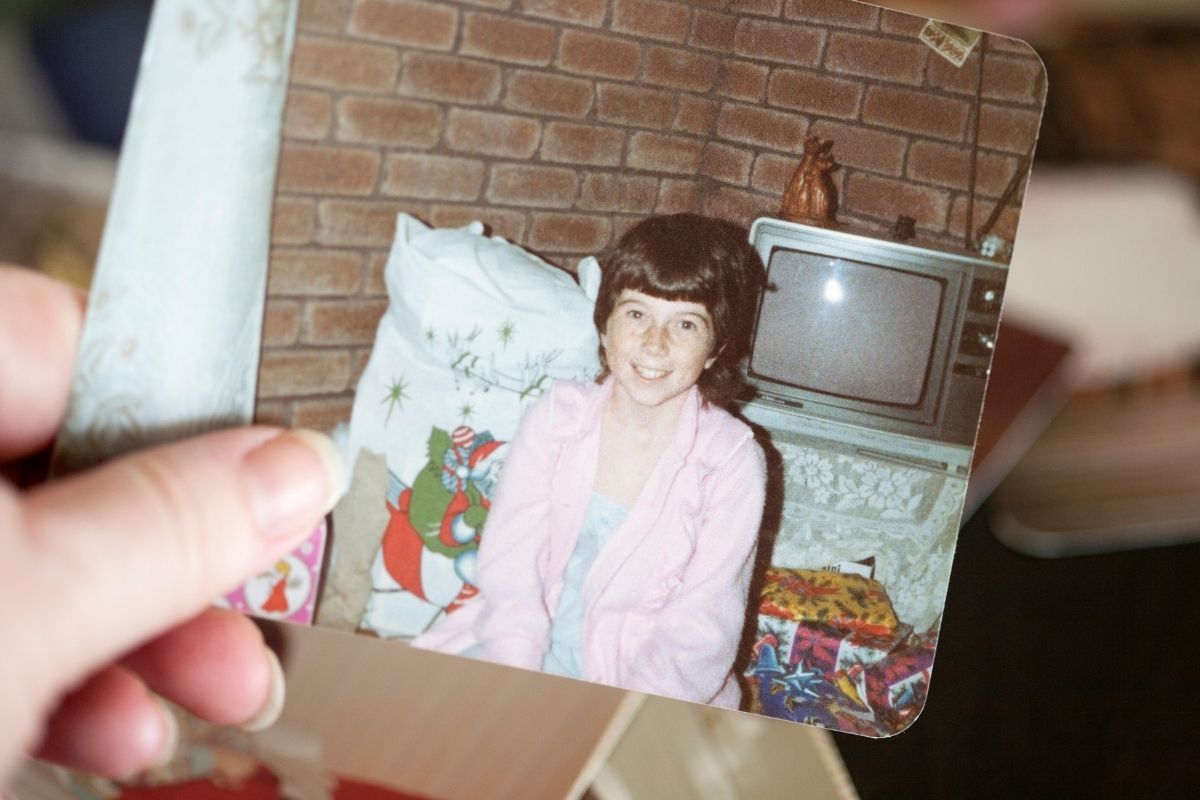The other morning, I had the pleasure of swapping stories and collaborating with a couple of my fellow Parenting Pathway friends. (Both ladies have an intimate look into the lives of middle school students through ministry.) I wanted to know what they would go back and tell their middle school selves if they had the chance, and then think about how to translate that into what parents could use for talking to their middle school students now. After I horrified everyone by regaling my everyday middle school habit of carrying a full-sized can of Aquanet in my purse every single day in case the masterpiece sculpture known as my bangs needed a touch-up, and a couple of war stories from the battles I faced teaching middle school, we had a great discussion about the ups and downs we all went through at that age.
What would I tell my middle school self?
The first thing we all remembered was 6th to 8th grade being marked by trying to figure out who we were and then wanting to blend in and be homogenous, even if that meant constantly conforming to what was the popular thing at the time. Sometimes that was to keep us from getting negative attention for not being on trend. Other times it was to draw attention to ourselves, as if our worth depended on the accolades of our peers. The thoughts of others weighed so heavy on our hearts. That’s why even when we think our middle school kids have heard it all before, we need to remind them of who they truly are. There are so many great verses about how loved and cherished we all are as children of God, but the one that speaks to me the most about the chaos of middle school is Romans 8:38-39.
For I am sure that neither death nor life, nor angels nor rulers, nor things present nor things to come, nor powers, nor height nor depth, nor anything else in all creation, will be able to separate us from the love of God in Christ Jesus our Lord.
Romans 8:38-39
Just like all of us, our middle school children need to be reminded of how very loved they are. How treasured. And how, in all of the crazy and the messy and the constant changes happening in their bodies and lives, God is constant. He doesn’t change, and neither does His love for us.
Do we ever outgrow our middle school selves?
Which brings us to the next thing we chatted about…how at this age, so much of your identity can get swept up in what you do instead of who you are. What if you’ve always been a great performer, but you don’t get cast in the school play? What if you have always been a star athlete, but then an injury lands you on the bench? It can feel hopeless for kids when something happens to change the things they feel like they are known for. That’s why it is so important to keep reiterating their identity in Christ and how we have a different hope that doesn’t end with this life. We can look forward. (And yes, the present can seem like the end of the world when those bad things happen, but we can all use the reminder to have hope. Parents can, as well.)
See what great love the Father has lavished on us, that we should be called children of God! And that is what we are! The reason the world does not know us is that it did not know him. Dear friends, now we are children of God, and what we will be has not yet been made known. But we know that when Christ appears, we shall be like him, for we shall see him as he is.
1 John 3:1-2
It’s not about the jeans, really!

And now for the last thing we talked about (and the source of the title of this piece!), and that is how so much of your identity in middle school can be tied to your appearance. I’ve never shared this story with my middle school-aged son, but I know I should. It was so much easier to share it with my friends! (Crazy how that works, isn’t it? I’ve regaled him with like a dozen different stories about my middle school band director and his habit of getting angry with the trombone section, banging his fists on the podium, and sending his baton flying toward me like a dart in the flute row. Which, to be honest, is a fun story to tell…but I haven’t shared many stories like this one.)
I remember being in the eighth grade and finally getting to wear my new pair of acid wash jeans. They were glorious…super bleached with hot pink and turquoise. I had deliberately gotten them in a smaller size because I wanted so desperately to be thin like the other girls in my grade. I had eaten nearly nothing for weeks to lose weight. (In hindsight, I realize this was clearly an eating disorder, but whew, that’s another topic for another day.) But the day finally came when the jeans fit, and I clearly remember wearing them out to the blacktop where my friends and I would hang out after lunch. My friends lavished me with praise and encouragement. And it felt great to be admired for my appearance. And even called…gasp!..skinny. But after the compliments and attention had subsided, I couldn’t help but feel sad. I was a straight A student, I was a talented flute player, and I had won awards in the school play competition. I was funny, and kind, and helpful, and compassionate. But my peers never made a big deal out of those things, at least not on the level they did for my outward appearance. It was a hard truth to swallow at such a young age, and our kids are facing similar situations every day too. (Frankly, so are we as adults. I mean, just look at Adele…she has like eleventy-bajillion Grammy awards, but all anyone can talk about lately is her weight loss.)
This brings us back to how it is so very important for us to speak love and reassurance to our kids as often as we can. It can be a little awkward sometimes since they don’t want to be “babied”. (I use a code word with my son for “I love you” so I can slip it onto a post-it note without him being embarrassed.) And it is also so important for us to remind them of God’s love for them as often as we can. And remind them how overwhelmingly and unconditionally He loves them, no matter what they do or how they look or don’t look.
And may you have the power to understand, as all God’s people should, how wide, how long, how high, and how deep His love is.
Ephesians 3:18
So what are the main takeaways from our discussion?
- Talk to your kids about your experiences growing up—the good, the bad, the ugly, the embarrassing, the funny, and everything in between. It helps us all to know we are not alone.
- Don’t stop with the encouragement and telling your kids how much you love them just because they act like they don’t need it or don’t need you to. They may need it even more now than when they were little!
- Even if you think they have heard it many times before, kids need to be reminded of who they are in Christ and how much God loves them. They are going through so much change, and they need to remember that God never changes and neither does His love for them.
P.S. A big thank you to Nikki and Aubree for their insight and help!
P.P.S. Just a disclaimer…I am not at all trying to criticize losing weight and getting healthy. I just wanted to share my experiences in the hopes of helping someone else. The point I was trying to (hopefully) make was that so many times our outward appearance is what is most noticed in our society and that it is important to remember where our true value lies.
P.P.P.S. While you’re telling all those fun middle school stories to your kids, remind them to listen when they learn typing in school. Still the most useful class I’ve ever had. Seriously.
- Abby’s Look. 2022. The Best of The 80’s: Acid Wash Jeans. [online] Available at: <https://abbyslook.wordpress.com/2013/10/05/the-best-of-the-80s-acid-wash-jeans/> [Accessed 20 January 2022].

